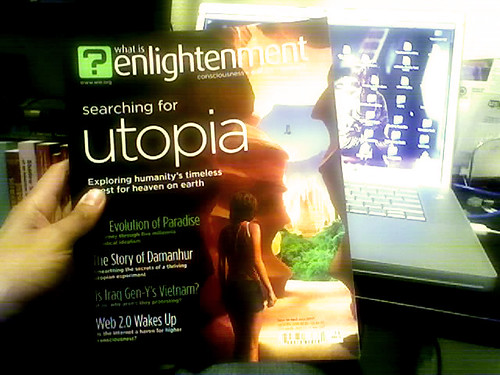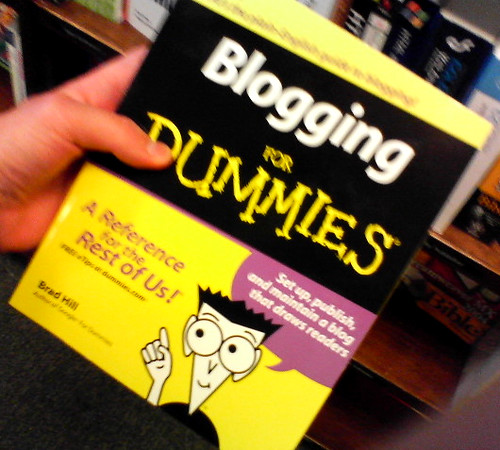My Brain’s Messing Me Around
Although it doesn’t look like I’m doing any work for this course, the truth is I AM!!!! A lot of preparatory work and time is spent prior to the reflecting blogging.
In a number of ways I reflect on what I’m reading and hearing others talk about. I attended the Digital Nation part 1 last Thursday in the Web 2.0 room and learned about Distractions Everywhere, which I already knew because I get distracted similar to this myself. At school I feel this need to check my phone a number of times a day to see if I have any missed calls or messages, I check my email even more often, and the first thing I do when I come home is switch my computer back on, have my phone beside me, and open up Facebook. Why do I not want to miss out on anything? I’m quite similar to my both my sons, but their focus seems to be more than social networking, and they’re much better at multitasking than I am. While doing work for school they’re on Facebook, MSN, Skype, watch YouTube movies, type on Word, check Powerschool, Panthernet, and do a Google search. What’s doing this to their brain? Do I measure this by looking at their grades I can check in Powerschool? Do I have to also check my kids more when they’re so called studying in their rooms? Do they play online games similar to the South Korea Gaming Craze? I’m sure they have done multiple hour sessions playing games with their friends online similar to what we saw watching Frontline. That same Thursday, prior to this session, I had a talk with my students about using technology in our daily lives and showed them the video A Vision of K-12 Students Today, where kids tell how many hours a week they use a variation of technology andsome of them showed the time spent in a week playing online games. I’d ask my students to share one kind of technology they would use a week and for how long. One of my students claimed that he’d play seven hours daily at weekdays and almost the whole weekend adding up to sixty-four hours of gaming a week. He’d spent half an hour to one hour homework a day, and now I know why he has trouble focusing in my class, making slow progress in English, and does minimum homework. Or does his brain make adjustments so that he can handle it all? Who knows!!
My difficulties with the readings, we’re assigned to, is reading it of a screen. So, I have been playing with it. I’d read and then started taking notes on paper, which wasn’t working because I couldn’t even read my own scribbles. Next, I’d type the notes on a word document and I even printed out one article out after squeezing it to the smallest possible size to save some trees. Wherever I had to go, knowing there would be some waiting time; I’d bring my paper and a yellow highlighter(another color doesn’t seem to work for my brain as it distracts me big time) and read, re-read, and read some more until it became time to reflect:
How are my thoughts changing, or what was I thinking?
New Bloom’s Taxonomy Digitally
Bloom’s Revised Taxonomy By Anderson in 2001, using the verbs rather than nouns for each of the categories of the thinking skills, was so far pretty much what kept us educators going when planning our program towards the expected outcomes. Having now access to a whole range of new digital verbs, and their explanations, is great to help understand the technologies used in education nowadays, and probably even more important, to see the value of it. Good to know that hacking and playing games fall under the category of applying, that tagging is a way of analyzing, and that blogging is indeed one of the higher order thinking skills: Creating.
Connectivism, A Learning Theory for the Digital Age
I read most of this reading while waiting for a doctor’s appointment at the hospital. This article was printed out and I read it holding my yellow highlighter in my hand. Thanks to the usual waiting time, my active and still alert brain part helped me to select the following notes:
Learning theories such as behaviorism, cognitive, and constructivism were developed in my time; where there was barely any technology used in learning. Learners a little as forty years ago would complete the required schooling and enter a career that would often last a lifetime. Well, that’s my time again, and all I ever wanted to be was a teacher. Information development was slow and measured in decades, where as now the amount of knowledge in the world known today was not known 10 years ago, and is now doubling every 18 months according to ASTD (American Society of Training and Documentation). We must include technology and connection making as learning activities to move learning into a digital age. Experience is no longer the best teacher of knowledge but chaos is a new reality; brake down predictability, the meaning exists, and the learner’s challenge is to recognize the patterns, which appear to be hidden. Network does make these connections and I love now hearing myself talking to a friend while walking during the early morning hours, “it’s push and pull, get yourself in Google reader and have the information come to you.” Our ability to learn what we need for tomorrow is more important than what we know today. The pipe is more important than the content within the pipe. I can’t agree more with this but it is still a challenge.
Living and Learning with New Media: Messing Around
Knowing that our students using media learn more from their peers than us adults, it is good to realize that we adults can still influence in setting the learning goals. After reading about Hanging Out I now understand that picking up basic social and technological skills are needed to participate in society nowadays. Therefore we, we educators, should be open to forms of experimentation and social exploration in our schools. Young people use specific media as tokens of identity, taste, and style to see themselves in relation to their peers. We as adults are not part of their hanging out but we should and could be very much part of Messing Around with digital media and online communication. For me it’s also very much a matter of getting used to how young people use new media to initiate the first stages of a relationship. A while ago my son and his friends met a girl who was on holiday at the beach. There was a mutual interest but, possibly because of lack of technology present at that moment, no “real” f2f contact was made. When she and her family left the island by speedboat there was just some waving hands and a smile. “Why didn’t you just go talk to her?” I asked my son. “Mom, you don’t understand!” he replied. As soon as she had disappeared from the horizon my son’s friend inquired at the beach resort reception and was able to get hold of her name and nationality. A quick search on Face Book made it possible that they are now “hanging out” because they knew how to do the “messing around”. Indeed new media empower youth to challenge the social norms of their elders in a unique way.
It is recognizable for me to read that some activities that we identify as messing around include looking around, searching for information online, and experimentation and play with gaming and digital media production. The difference between my students and me is that I need to learn how to practice with the tech tools to successfully plan my teaching. My students are so much ahead of me because they are growing up used to be messing around, but I’m catching up, I hope…..





